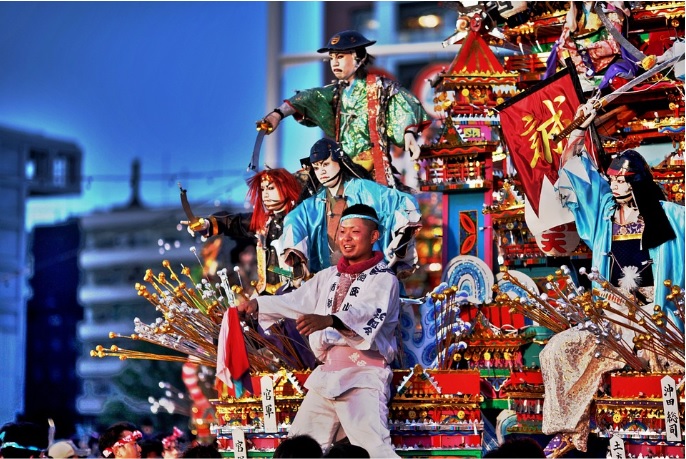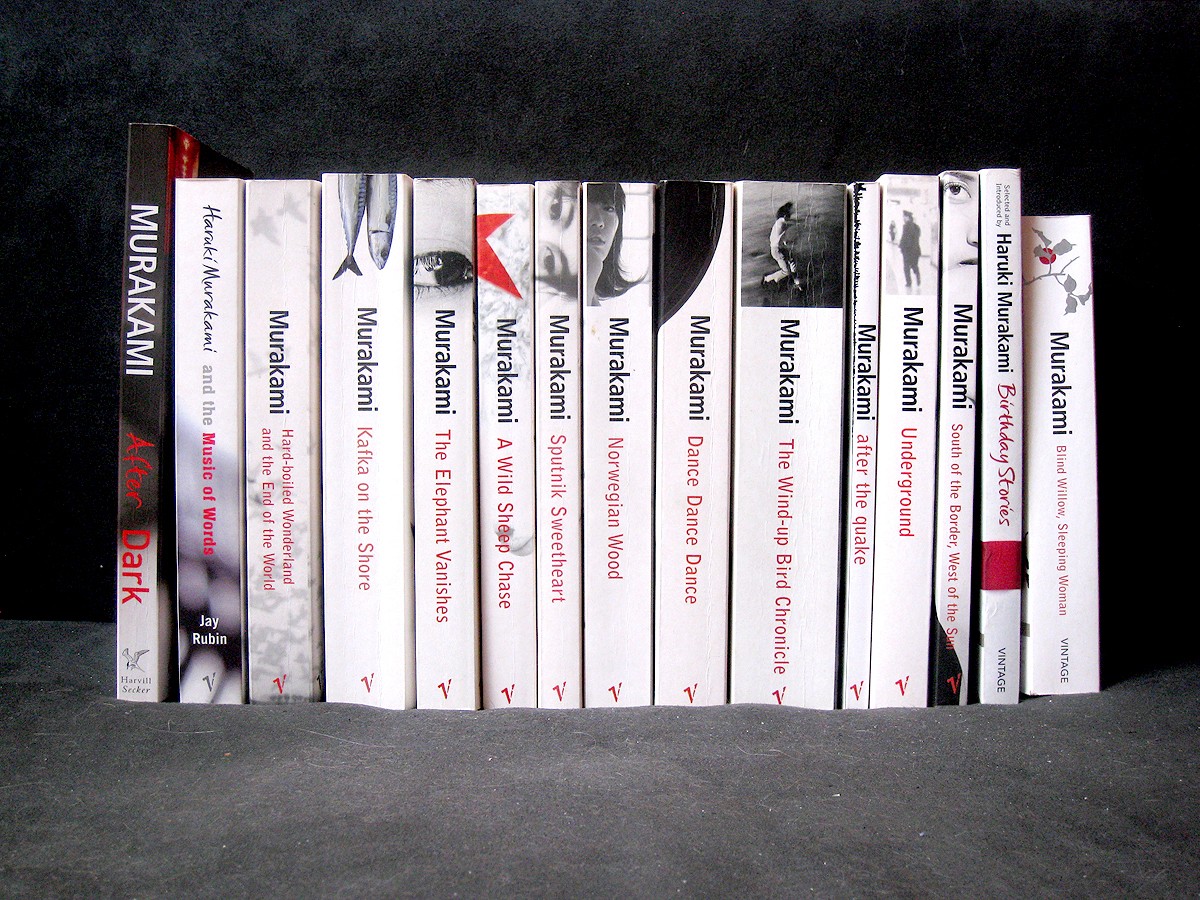
Haruki Murakami is one of the internationally-acclaimed contemporary Japanese novelist of today. He was actually an accidental novelist who lived in a non-conformist way-- he hated working in the company that he wanted to run a business, living with the things he likes, such as jazz music. Suddenly, while watching a baseball game, upon the ball meeting the bat, he realized that he could be a writer. That day, he went home and set up his kitchen table, and began writing his awesome quilt of words. After writing several books, he has made his name in literature scene.
Here are our recommended books to kick-start your Murakami-esque adventure.
1. Hear the Wind Sing (1979)

Hear the Wind Sing is the first novella of Murakami. It is about a 21-year old unnamed narrator who met his friend The Rat in J's bar where they frequently hangout. He spoke of his three former girlfriends and how he met the girl who unintentionally ends up in bed with him. This girl committed suicide. The narrator had nothing to do with the incident, but later in the story, he realized that his behavior towards the girl and his last conversation might be the reason for ending her life. This book is experimental, since it was his first book. However, it has opened the identity of Murakami in establishing his writing style.
Words to remember:
“There's no such thing as perfect writing, just like there's no such thing as perfect despair.”
“Whenever I look at the ocean, I always want to talk to people, but when I'm talking to people, I always want to look at the ocean.”
2. A Wild Sheep Chase (2002)

It is the book that has put Murakami in the international scene. It is a story combining mythology and mystery with a simple setting, and a long chase. The story opened with an advertising executive who receives a postcard from a friend. The protagonist then appropriated the image for an advertisement intended for an insurance company without knowing that the image of sheep has a star on its back. Until the image caught the attention of a man who's chasing the sheep or else face dire consequences.
Words to remember:
“Most everything you think you know about me is nothing more than memories.”
“My biggest fault is that the faults I was born with grow bigger each year.”
3. Norwegian Wood (1987)
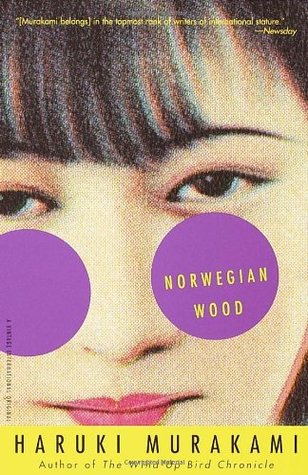
Toru Watanabe, a man on his 30's, has a deep connection with the winter season and the Beatles track "Norwegian Wood", which suddenly brought him to his dark winter memories in his young age as a student. He returned to his memoirs with his love interest named Naoko, who had undergone therapy in a mental institution and suddenly committed suicide. The remnants of his beloved Naoko keep haunting him when the winter season comes.
Words to remember:
"What a terrible thing it is to wound someone you really care for and to do it so unconsciously.”
“What makes us the most normal," said Reiko, "is knowing that we're not normal.”
4. What I Think About When I Think About Running (2008)

Aside from writing books, Haruki Murakami devotes his time on running to keep fit. In this book, he reflects on the influence of running in his life as a novelist.
Words to remember:
"So the fact that I’m me and no one else is one of my greatest assets. Emotional hurt is the price a person has to pay in order to be independent."
“I've always done whatever I felt like doing in life. People may try to stop me, and convince me I'm wrong, but I won't change.”
5. 1Q84 (2009)

It is a story of a young girl named Aomame, who happens to see the discrepancies of life around her. She entered a parallel existence she named as 1Q84, with Q means Question mark. It happened on 1984. Then there is a math teacher and an aspiring writer named Tengo, who developes his ghostwriting project. The two has been connected by several people: a beautiful, dyslexic teenage girl with a unique vision; a mysterious religious cult that instigated a shoot-out with the metropolitan police; a reclusive, wealthy dowager who runs a shelter for abused women; a hideously ugly private investigator; a mild-mannered yet ruthlessly efficient bodyguard; and a peculiarly insistent television-fee collector. Together, they unraveled mysteries and found love.
Words to remember:
“I'm tired of living unable to love anyone. I don't have a single friend - not one. And, worst of all, I can't even love myself. Why is that? Why can't I love myself? It's because I can't love anyone else. A person learns how to love himself through the simple acts of loving and being loved by someone else. Do you understand what I am saying? A person who is incapable of loving another cannot properly love himself.”
6. Sputnik Sweetheart (1999)

Sputnik Sweetheart is another great book from Murakami. It is about Sumire, a writer-wannabe who's in-love with Miu, a glamorous and successful woman, seventeen years her senior. Sumire has a bestfriend K, whom she discusses her questions in love: like sexual desire, and confessing her feelings for Miu. Meanwhile, her bestfriend also asks herself if she will confess her feelings to Sumire.
Words to remember:
“Why do people have to be this lonely? What's the point of it all? Millions of people in this world, all of them yearning, looking to others to satisfy them, yet isolating themselves. Why? Was the earth put here just to nourish human loneliness?”
7. Kafka on the Shore (2002)

Kafka on the Shore centered to two characters in two interrelated plots: a teenage boy named Kafka Tamura, who faced living independently to escape an oedipal curse, and look for his missing mother and sister. His father used to be a flute-maker made from cats; the other one is Nakata (story is told in even chapters), who used to have an uncanny abilities and has found a part-time work as finder of lost cats.
Words to remember:
“Closing your eyes isn’t going to change anything. Nothing’s going to disappear just because you can’t see what’s going on…. Keep your eyes wide open. Only a coward closes his eyes.”
8. The Wind-Up Bird Chronicle (1994)
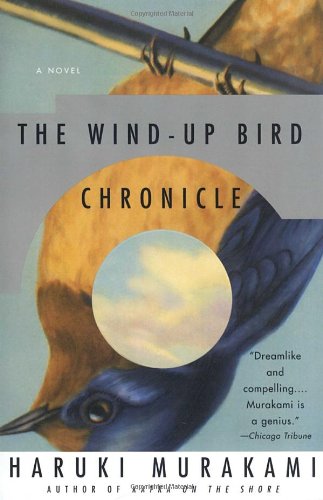
The Wind-Up Bird Chronicle is a detective story, an account to disintegrating marriage, and shovels the buried secrets of the last world war. In the Tokyo suburbs, a young man Toru Okada finds his wife's lost cat, and later on, he finds himself finding his wife as well. In his quest, he encounters a bizarre group of allies and antagonists: a psychic prostitute; a malevolent yet media-genic politician; a cheerfully morbid sixteen-year-old-girl; and an aging war veteran who has been permanently changed by the hideous things he witnessed during Japan's forgotten campaign in Manchuria.
Words to remember:
“Is it possible, in the final analysis, for one human being to achieve perfect understanding of another?
We can invest enormous time and energy in serious efforts to know another person, but in the end, how close can we come to that person's essence? We convince ourselves that we know the other person well, but do we really know anything important about anyone?”
9. Hard-Boiled Wonderland and the End of the World (1985)
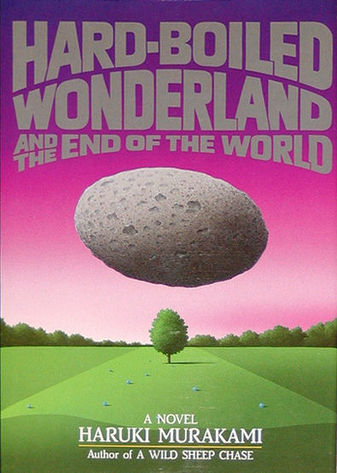
Hard-Boiled Wonderland and the End of the World is a magnum opus of Murakami, originally published on 1985. It parted in two stories: the first one is "Hard-Boiled Wonderland", where the narrator is a "Calcutec", a human-data encryptor. The Calcutecs are trained to use their subconsious mind as subconscious encryption. He realizes that he only has one day and a half before his consciousness leaves leave the world. It is then connected with the next story, told in the even chapters of the book, "End of the World," where the narrator is a "dreamreader", who traces the mind from a town. A scientist from Semiotecs (rival of Calcutec) is about to replace the Calcutec's own perceptions of reality by implanting it to the latter's subconscious mind.
Words to remember:
"Two people can sleep in the same bed and still be alone when they close their eyes"
“Unclose your mind. You are not a prisoner. You are a bird in fight, searching the skies for dreams.”
10. Colorless Tsukuru Tazaki and His Years of Pilgrimage (2013)

This story has a theme that creativeky tackled ostracism (exclusion from a society or group) through colors. A group of friends whose names happened to be names of hues in Japanese, often joke Tazaki as a blank, isolated, sexless, and affectless guy, like his name suggests. He then finds the reasons for ostracism in his pilgrimage.
Words to remember:
“One heart is not connected to another through harmony alone. They are, instead, linked deeply through their wounds. Pain linked to pain, fragility to fragility. There is no silence without a cry of grief, no forgiveness without bloodshed, no acceptance without a passage through acute loss. That is what lies at the root of true harmony.”
Photo of Murakami Book Collection from Tumblr



